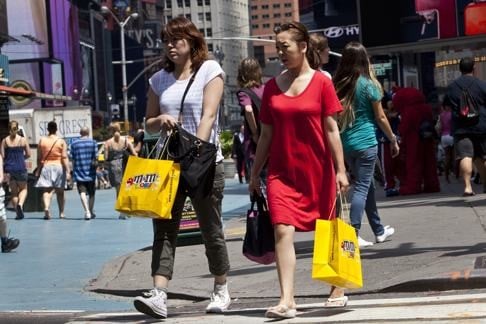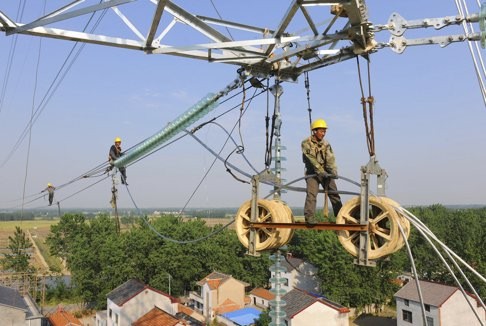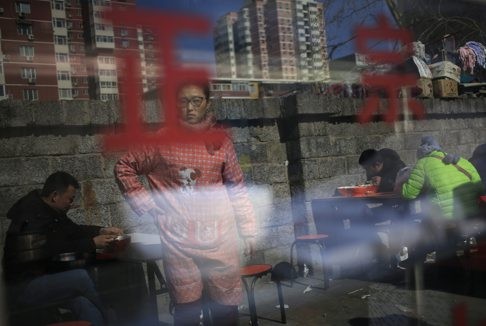High levels of investment – and debt – are good for China’s economy
Frank Newman and Dan Newman argue that the Chinese propensity to save means significant investments – provided they are productive – are needed to support demand, and are not to be feared

Many economists believe China should curtail economic investment to make room for rising consumption, and that it should avoid debt. But because of the high tendency to save, high levels of investment are essential for China’s growth, including some financed by debt.
Investment – private sector and public – means building facilities and infrastructure. It also provides critical support for consumption.
In the most basic national economic equation, gross domestic production is the sum of four components: consumption, investment, government consumption and net exports. Saving is defined as what is not spent on consumption and government consumption, and is equal to investment and net exports combined.
Saving is much higher in China than in the US. As a share of GDP, China’s consumption, investment, government consumption and net exports come to 38 per cent, 44 per cent, 15 per cent and 3 per cent respectively. The comparable figures for the US are 68 per cent, 17 per cent, 18 per cent and minus 3 per cent. Thus, China’s saving is 47 per cent of GDP, compared with America’s 14 per cent.
The Chinese tendency to save means investment is crucial to a healthy economy in China.
To raise national income, significant changes in government consumption or net exports are not practical. By contrast, investment can vary substantially, and is a prime driver of consumer income, and thus spending. Significant investment supports healthy consumption, particularly when people spend a relatively low portion of their income.

China has handled this well in recent decades, improving the nation’s infrastructure and productive capability while supporting income. The degree that investment affects consumption can be computed algebraically, based on the “average per cent of income consumed” (APC) of an economy.
In the US, this figure exceeds 90 per cent. This means the factor indicating incremental consumption based on changes in investment is over 2.0, so a relatively small proportion of investment is needed to sustain consumer income, spending and GDP. But in China, where saving is so high that the APC is roughly 50 per cent, that factor is only about 0.6, so a large amount of investment is needed to support consumption.
This ratio is not the result of a specific government policy; it is the consequence of a mathematical relationship reflecting the high saving rate.

It is just not mathematically possible for consumption to increase if investment declines, while the APC remains stable. If investment declines, then consumption will decline; so will GDP. If investment in China were allowed to decline meaningfully, while the APC remains steady, then income and consumption would fall substantially, and the economy would go into steep decline.
As the average per cent of income consumed in China gradually increases, then investment can be gradually reduced. But the tendency to save reflects deep cultural attitudes, and changes very slowly, over generations; so investment must stay high for many years if the economy is not to degrade.
If investment in China were allowed to decline meaningfully, while the average per cent of income consumed remains steady, then income and consumption would fall substantially, and the economy would go into steep decline
Debt is a natural way to finance some of the necessary investment. Financing in China includes corporate retained earnings and new equity, plus instruments classified as debt: primarily loans and bonds, including those issued or guaranteed by the central government.
Total financing in China, including debt, must grow to support the high level of investment that is needed. If GDP grows at about 7 per cent, investment comprises about 45 per cent of GDP, and about 50 per cent of investment is financed by net new debt, then over a five-year period, that debt will grow by an amount equal to about 100 per cent of GDP. Total saving will also increase by an amount roughly equal to investment.
Of course, not all debt goes towards useful investment, and some debt bears scrutiny, such as that taken for speculation. But the debt used to support needed economic investment should not be a systemic problem, as long as most of it is reasonably productive. The central government can always act as a backstop against financial disruption and can adjust the pace of projects to mitigate inflation in the event of an overheating economy.

Investment can also be increased in slow times to help support demand in the economy. Financing for it should amount to a small portion of the overall financial system. Adding infrastructure programmes equal to 2 per cent of GDP would take about 1.5 trillion yuan, amounting to an increase of only about 1 per cent of total financing. In China, total social financing amounts to less than 3 times of GDP, a far lower proportion than America’s equivalent, at about 11 times GDP.
Recognising the implications of a high-saving culture, the focus should shift to the key challenges of implementation. In the private sector, this means a focus on how to foster good investment decisions, with financing going to worthy projects. For public investment, this means attention on how to make wise choices – including projects for water supply, environmental improvement and urban transport – and how best to finance them.
Continued improvements in productivity are critical to building supply capabilities for long-term growth. But as the popular tendency to save changes only very slowly, continued substantial spending on investment will be essential to sustain demand in China for years to come, and we should expect to see growing debt as a natural result.
Frank Newman is chairman of Promontory Financial Group – China. He is a former deputy secretary of the US Treasury, and former CEO and CFO of major banks in the US and China. Dan Newman is an economics researcher and writer